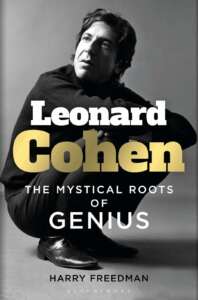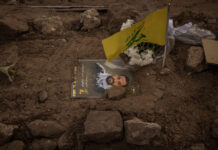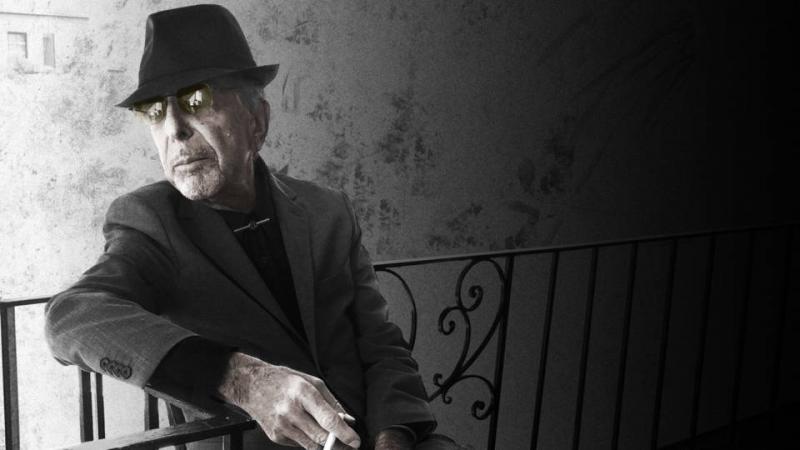On hearing that I had recently written a book about Leonard Cohen, someone asked me why I thought Bob Dylan was awarded the Nobel Prize for Literature rather than Cohen. Not being a Nobel prize adjudicator I couldn’t answer the question but I did agree that although Leonard Cohen is best known as a singer-songwriter, Leonard Cohen was first and foremost a poet extraordinaire.
One of the things that makes listening to him so compelling is that his songs are poems set to music.
A hallmark of Leonard Cohen’s musical poetry is its deep spirituality. But unlike most spiritual poetry drawn it is not from his own imagination and rooted in contemplation of God, love, nature or any of the other themes that lend themselves to poetic inspiration. Rather, Cohen relates to the numinous through the legends, stories and folklore of Jewish and Christian tradition.
Cohen was deeply learned in the traditions of both faiths. He grew up in a committed and scholarly Jewish home in Montreal, his grandfather on his mother’s side was a rabbi, on his father’s side his forebears were communal leaders and activists. His great uncle was Canada’s Chief Rabbi. Yet Cohen was as knowledgeable about Christianity as he was about the Jewish faith he grew up in. He explained in a poem that growing up in Montreal was a Christian experience: ‘We who belong to this city have never left the Church.’ As a child he was taken to Church on Sundays by his Irish nanny and despite his Jewish home environment he once said that he was brought up ‘part Catholic in a certain way’.
We hear both traditions in his music. His song “Hallelujah”, which is based partly on the story of King David’s adultery with Bath Sheba and partly on Talmudic legends, turns out in the final analysis to be a meditation on the power of words. Words in both Christian and Jewish tradition are sacred; in Genesis God creates the world by uttering words and the Gospel of John states ‘In the beginning was the Word.’ Although the word “Hallelujah” comes from the Hebrew bible – it occurs only in the book of Psalms, written according to tradition by King David- it features as prominently in Christian liturgy than Jewish. In The Story of Isaac, Cohen’s retelling of the biblical account of Abraham’s near sacrifice of his son, he switches midway through to the Crucifixion. And in “The Window”, a song deeply rooted in Kabbalah, he blends Christian and Jewish mystical symbols in his account of the mystical ascent of a soul to heaven and the corresponding descent of the Word into flesh. While in “Different Sides” he compares the two religions by posing three riddles, each of which is answered by paradox. He explains that from our perspective the religions are different. But in the eye of heaven they are the same.
Cohen uses religious literature as metaphor and allusion to construct a theology that scholars continue to argue over. His belief system is somewhat fluid, but in one area he is crystal clear. Sex is not just a holy act; it is the supreme, sacred endeavour. And although this may seem scandalous to devotees of contemporary religions it is a point of view fully supported by the Bible. The biblical Song of Songs, or Canticles in old-speak, is an erotic poem about the love between two people. Both Jewish and Christian traditions treat it as a metaphor for God’s love for humanity, but clearly this is not its plain meaning. That is supplied by the kabbalah, the Jewish mystical tradition which Leonard Cohen read and frequently alluded to. Sexual conjugation, according to one stream of kabbalistic thought, is the physical representation of the unio mystica, the process through which the soul unites with the divine. This explains why, in the words of the 2nd century rabbi Akiva, all books of the Bible are holy, but the Song of Songs is the holy of holies. Leonard Cohen agrees.
Leonard Cohen did not win the Nobel Prize for Literature. But his poetry is up there with the greats. And listening to Cohen’s songs with an awareness of his sources, exploring the background and the context of those sources, and seeing how he adapted them for his own purposes, adds an extra dimension to the music of one of the most astonishing and talented poet-musicians of our age.

























